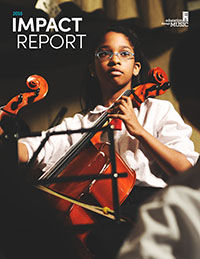of students at ETM partner schools love singing or playing instruments
Internally motivated students of music:
- Learn music more deeply,
- Are more likely to continue their music education,
- Are more likely to persist in musical tasks even when they are challenging.



